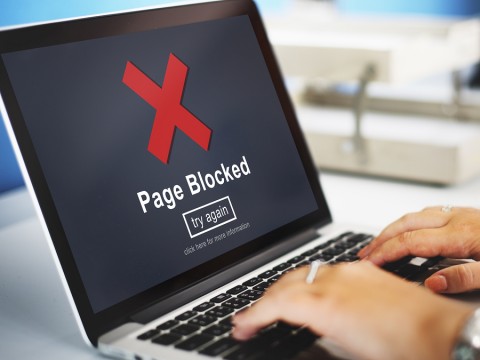
By Ahmad Hathout
Canada’s large internet service providers (ISPs) are testing the court system’s appetite for further precedent-setting decisions on piracy, requesting the court force blocks on live streaming hockey content with changing IP addresses.
In May, the Federal Court of Appeal upheld an order by a lower court forcing ISPs to block the websites of alleged copyright infringer GoldTV, which used an IPTV service to allegedly sell unlicensed content for a monthly fee. The ISPs initially asked the court in July 2019 to rule against GoldTV by temporarily banning the service from operating until a decision to permanently ban it could be made.
But the ISPs did not wait for a final, permanent judgment against the defendants, who did not stop the infringing activity, as they quickly brought a unique request in to force the providers to block the websites of the alleged infringers. A hearing into the matter was held in September 2019, which led to Canada’s first-ever legal order to block websites in November 2019.
On Wednesday, Rogers, Bell, and Groupe TVA brought a new interim website blocking request to Federal Court, this time targeting websites that aggregate various links from across the internet that allow anyone to watch live National Hockey League games for free. (The plaintiffs have licensing rights to broadcast the games.)
What is unique here is that the request asks for the court’s consent to dynamically block IP addresses that provide the allegedly infringing live content as they emerge, greatly expanding the now-traditional static website-blocking order that targeted GoldTV addresses. And in the case of live sporting events, “live blocking” would last for the duration of the event itself.
In other words, because the IP addresses feeding this alleged unlicensed content change regularly – the ISPs say there were 822 distinct IP addresses per week in some research they commissioned – new blocking “dynamic” methods are needed. The ISPs say this is not legally different from the GoldTV order.
“Technology is evolving rapidly (including the Internet getting faster, cheaper and more widely accessible) and pirates are also becoming more sophisticated over time, changing the way they pirate TV content as the technology evolves and as they seek to circumvent enforcement efforts,” the ISPs say in their motion to the court.
“As a result, the Plaintiffs (and other copyright owners) are required to constantly adapt their strategies to be able to enforce their rights, with variable success.”
And the request comes much sooner than any type of judgment against the defendants. While in GoldTV, the ISPs waited for a temporary ban, the ISPs in this case filed the website-blocking request less than a month after it filed the original complaint against the alleged infringers in mid-June – with no judgment against the defendant.
“This underscores how little effort is being made to go after the actual perpetrators and how the broadcasters view these orders as the go-to remedy of choice rather than a last resort,” said Tamir Israel, lead lawyer on telecommunications regulation activities at the University of Ottawa’s Canadian Internet Policy and Public Interest Clinic, which has been participating in court cases involving website blocking.
CIPPIC, like some other intervenors in the GoldTV case, argued that site-blocking should be an order of last resort because there exists in legislation other ways to deal with piracy and blocking risks encroaching on net neutrality and freedom of expression issues, as they argue the risk of blocking legitimate content is present.
The ISPs in this case argue that it is very difficult to bring defendants to court because they are largely anonymous — using fake aliases, fictional businesses, and changing the location of their servers. They also point to the existing precedent of such blocking orders in European countries like the United Kingdom, Ireland, Denmark, France, and Italy.
Just like how the GoldTV site-blocking request was preceded by debate about a proposed federal blocking regime recommended by the largest ISPs and broadcasters, the NHL blocking request comes after the same ISPs requested such an expansive blocking request in its copyright review submission.
Last month, in a combined submission to Innovation Canada, which is reviewing Copyright Act changes, the large ISPs said website-blocking should, once and for all, codify the method of dealing with piracy into the legislation. It went as far as asking for dynamic IP blocking, so it can deal with unlicensed content on the internet swiftly.
Pure-play media company Corus said in its own copyright submission that the government should consider allowing for court-ordered website-blocking without first having to take the defendants to court.
The plaintiffs argue that live sports events are “among the most pirated television content,” to the tune of 362.7 million visits to streaming platforms in January 2019 alone. “Indeed, over half of sports fans consume sports content from unauthorized Streaming Platforms at least once a month,” it added. The global cost of all this sports piracy, they say, is $28 billion.
The ISPs estimate that the yearly decline in subscribers for television services in Canada would see revenue decreases of between $122 million and $178 million for the country’s broadcasters.


